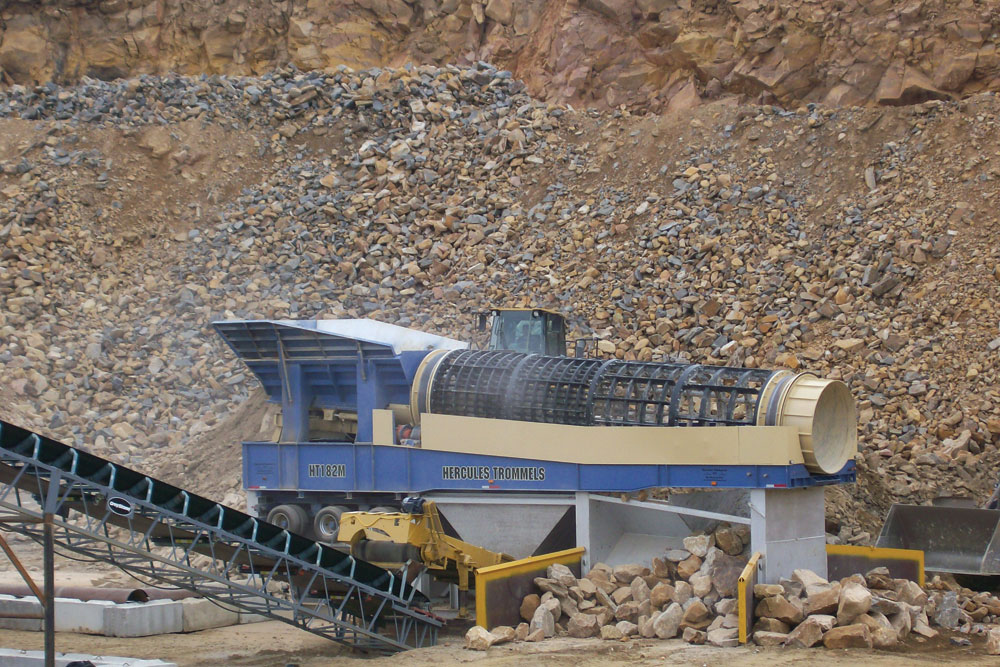When The Levee Breaks

New mobile Hercules trommel screen helps repair hurricane-damaged levees in New Orleans
A Hercules heavy-duty trommel screen, owned by Damon Pursell Construction of Liberty, Missouri, USA, is currently processing rock at a quarry in Pine Bluff, Arkansas, for use in rebuilding the levees in New Orleans that were damaged by the devastating tidal surge that followed in the wake of hurricane Katrina in August 2005.
The trommel, manufactured by Whitchurch-based Stelex Construction Equipment Ltd and the first of its type to be operating within the entire US plant rental market, is on contract for 10 months to produce four sizes of material from a highly abrasive sandstone which has a silica content of 85%. The unit is producing around 450 tonnes/h of the different sizes of rip rap, which are transported down the Arkansas river by barges to the quarry company’s own distribution centre, where large tonnages of the material are being sold on for the rebuilding of the hurricane-damaged levees.
The machine, a model HT182M, is one of a new generation of road-towable trommel screens that have been designed for long- or short-term contracts within the quarry and mining industries. With relocation in mind, the unit is of modular design and can be easily moved along a blast face wall or to a new site.
The feed hopper is made of Hardox steel to provide high wear resistance and can accommodate 16 tonnes of material (or up to 33 tonnes with extension plates). The end and side plates can be folded down to reduce height for travelling.
A variable speed-reciprocating hydraulic plate feed table, which is supported on rollers beneath the feed hopper, feeds material into the barrel by means of hydraulic rams, which can be adjusted to the required tonnage of between 250 tonnes/h and 500 tonnes/h. The 1.8m diameter barrel (made up of four 2m long segments) is manufactured from high-grade steel bars welded to form segments which are bolted together. The apertures are made to suit individual customer requirements.
The barrel itself is supported on four steel rollers, two of which are driven by heavy-duty variable-speed hydraulic motors, thereby eliminating drive chain or sprocket maintenance. The barrel’s rev/min can be fully adjusted to suit the type of material being fed to the trommel, to ensure optimum cleaning of clay-contaminated and high moisture content materials at all times.
At this particular site, and for operations where a longer-term contract may be planned, a specially engineered support frame, located on a pre-formed concrete pad, allows the unit to be lifted off its wheels and provides under-screen stockpile load-out bays, which eliminates the use of conveyors.
Any dirt or fines in the feed are discharged through the first barrel segment, while the clean rock travels along to be graded by the different apertures in the barrel. Oversize, which can be lump sizes of 900mm, are discharged at the end of the barrel.
After purchasing his first static trommel in 2000, Mike Pursell, the machine’s owner, soon recognized a need in the industry for a heavy-duty mobile trommel for the rental market. He now has three units out on contract and a further two machines on order.
He said: ‘All the Stelex machines have performed above our expectations, working 12h a day and giving 100% reliability, with very low maintenance costs. Our investment in the trommels was a good decision, and we are now working hard to service the needs of the growing US rental market with this equipment.’


